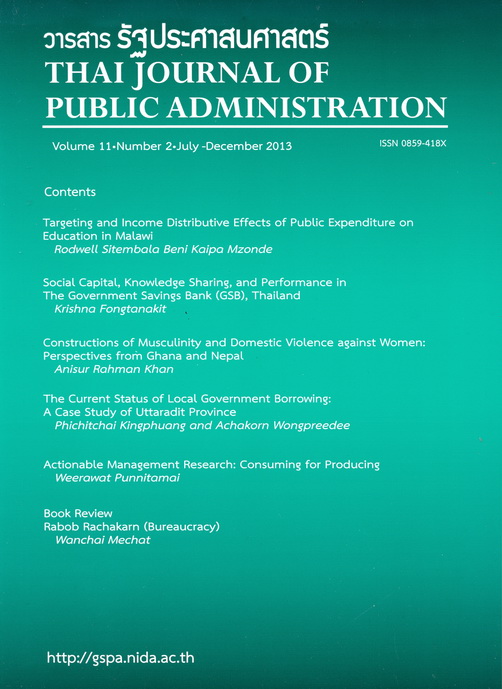Social Capital, Knowledge Sharing, and Performance in The Government Savings Bank (GSB), Thailand
Keywords:
Social capital, knowledge sharing, organizational performanceAbstract
This study examines the linkage of the three dimensions of social capital which can enhance knowledge sharing and in uence organizational performance. The linkage was studied through a structural equation model (SEM) utilizing the SPSS Amos 21.0 statistical software program. The SEM is based on Nahapiet and Ghoshal’s (1998) division of social capital into three dimensions, namely, cognitive social capital, structural social capital, and relational social capital. The SEM is, furthermore, premised on the proposals of Tsai and Ghoshal (1998) and Uphoff (1999) that the three dimensions of social capital are interrelated. Additionally, Bandura’s cognitive theory (1977, 1986, 1989, and 2001) is also incorporated into the SEM.
The data that were analyzed by Amos 21.0 using path analysis and other statistical procedures were collected from 1,440 bank staff in 167 GSB branches.The results showed that all paths exhibited a strong positive and significant effect on performance. The findings revealed that cognitive social capital has the strongest total effect on performance, while relational social capital has the strongest direct effect on performance. The empirical evidence demonstrated that it is worthwhile building cognitive social capital in order to enhance organizational performance



